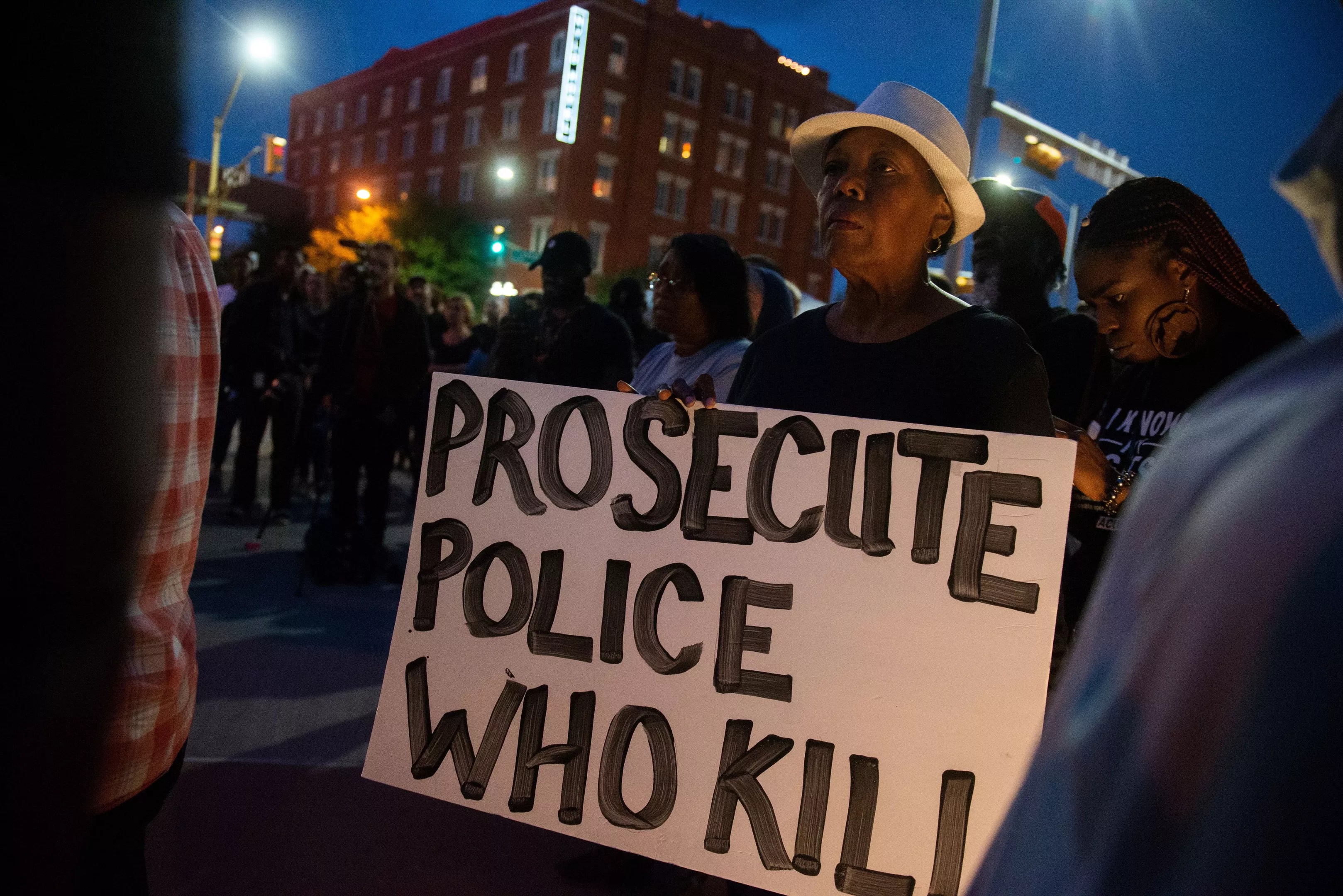
Brian Maschino

Audio By Carbonatix
Dallas Police Chief U. Renee Hall gave the public the first look at what she and her department believe Dallas’ improved Citizens Police Review Board should look like Monday. After harsh reactions from both those who want to strengthen the board and those who believe doing so would be unfair to police, it’s clear that any resolution is at least a few big City Council fights away. Does Dallas even have a problem with white police brutality directed against minorities? Brian Maschino
Hall has been working on improving the board since taking over the Dallas Police Department’s top job in 2017. She has met with a coalition of police reform groups, including local activists and the ACLU, and received voluminous feedback from the community after meetings held throughout last year.
This year, make your gift count –
Invest in local news that matters.
Our work is funded by readers like you who make voluntary gifts because they value our work and want to see it continue. Make a contribution today to help us reach our $30,000 goal!
The biggest changes recommended by reform supporters and the current board — which has no real power and can recommend officer discipline and not much else — were giving the board the power to subpoena officers subject to investigation and giving the board itself a budget to do its own investigating.
The chief’s final recommendations, made after considering the reform recommendations and consulting with Dallas’ police associations, called for neither. Dallas Police Association President Mike Mata told the Observer last month that even if the board could subpoena officers, doing so would be ineffective.

Dallas police march in formal attire at the memorial event in 2017.
Brian Maschino
“What are you going to accomplish [with a stronger citizens’ review board]?” Mata said. “Let me put you in a position that a police officer’s in. It could be a criminal investigation that they want to do. If I’m already under a criminal investigation, am I going to sit in front of you and answer your questions?”
Officers are going to assert their Fifth Amendment rights, Mata said.
“Is that going to look good to the public?” he asked.
“The assumption is that everyone in this process is going to get everything that they want. That’s almost impossible … because everyone has a different view of what oversight should look like.” — U. Renee Hall
Rather than being given subpoena power, Hall advised, the board should be allowed to watch internal DPD investigative interviews from a separate room as they’re being conducted. Hall also recommended that the size of the board be reduced from 15 members to no more than nine members and that all members be required to complete DPD’s Citizen Police Academy and a “reality based training” simulator.
City Council member Philip Kingston, a supporter of strengthening the board, blasted Hall’s proposal.
“Today, the police department has presented a group of suggestions for weakening the proposals,” Kingston said. “I don’t agree with any of them. These are all bad ideas. … Treating police officers differently from other witnesses weakens the board’s ability to do its job and it weakens its credibility in the eyes of the community.”
Giving the board police training, he said, could amount to indoctrination.
Kingston’s colleague, Jennifer Gates, worried that a more powerful board could stymie the department’s other goals.
“I don’t think it was communicated who was supporting the changes,” Gates said, bringing up a community meeting about the board that she attended. “But [the meeting went forward] with the assumption that everybody agreed that these were the issues that DPD was struggling with. I hear regularly from my constituents, and I think we all do, that, kinda primarily we’re real worried about recruitment and retention. We’re worried about police morale, and we’re also worried about the low number of officers and response times going up and crime — hearing about my crime, even though the numbers are stagnant, there’s just that experience, that fear.”
After the meeting, Hall told reporters that she believed her plan would give the board appropriate oversight.
“This process allows the board to be able to monitor investigations — to sit in and listen to officers give testimony on administrative incidents, and recommend questions to be asked to those officers,” Hall said. “I don’t know how you get any closer to an investigation than that.”
Hall’s proposals, which could change based on the reactions she received Monday, are set to be reviewed by the full City Council on March 20.